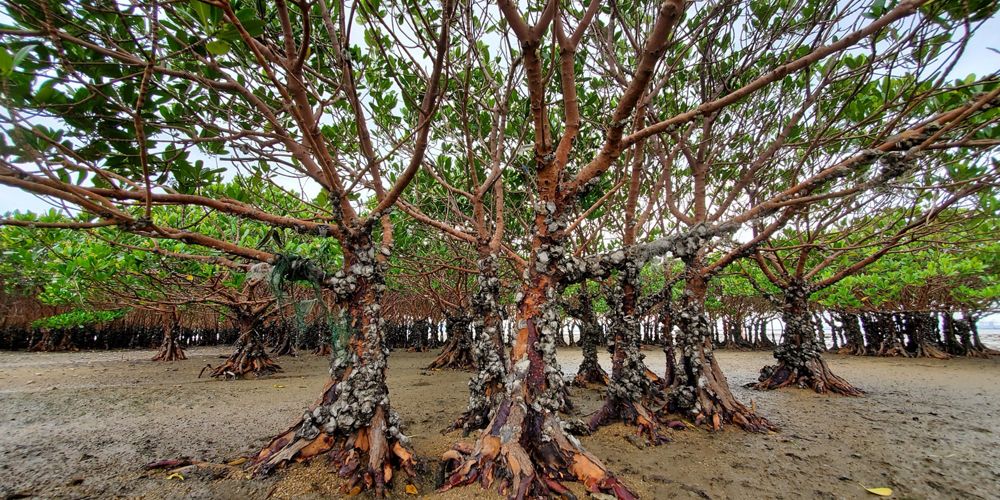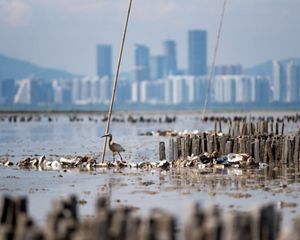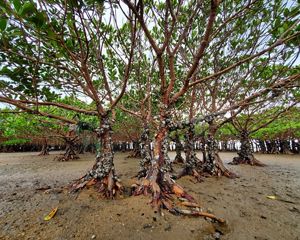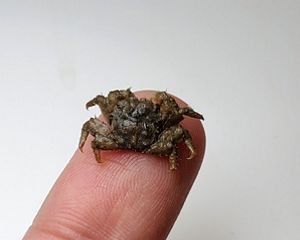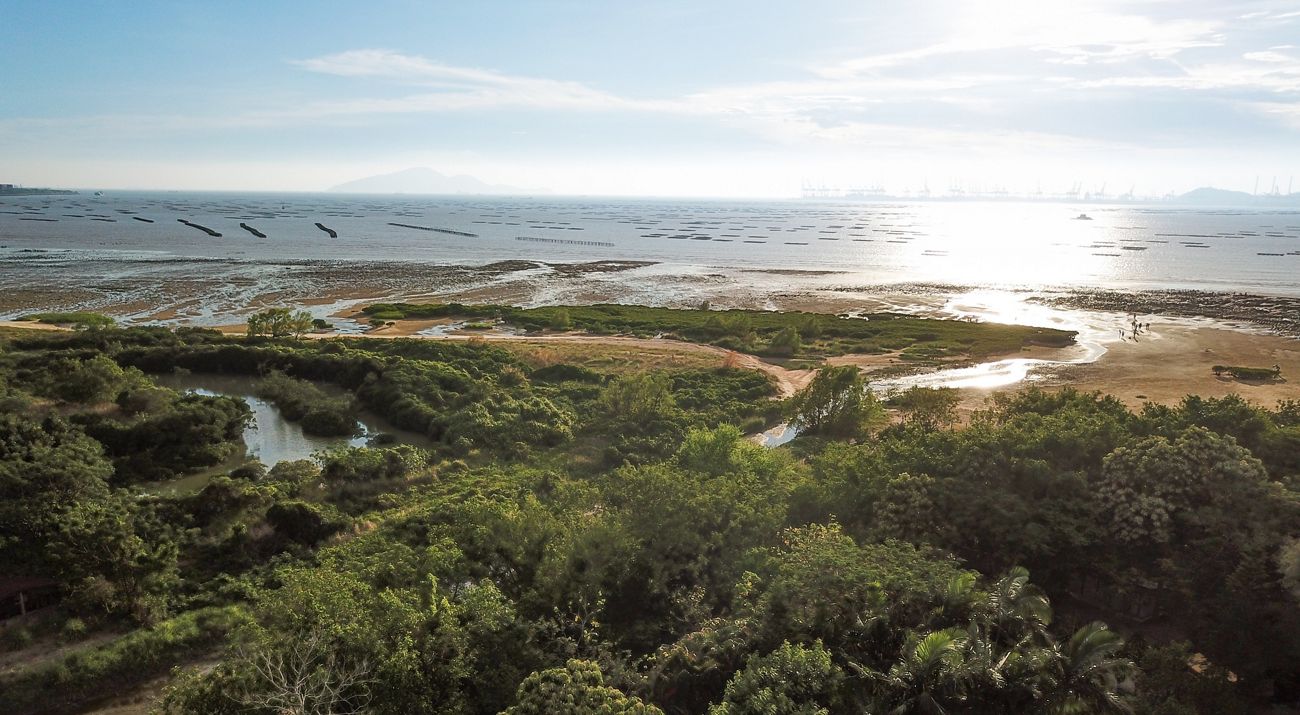
Managing Pak Nai's Ecologically Important Habitats
The Nature Conservancy is working to preserve Pak Nai's natural beauty and sensitive biodiversity in Hong Kong.
From iconic skyscrapers to sandy beaches and lush mountains, Hong Kong offers a striking balance where people and nature co-exist. This is especially evident in Deep Bay, a strip of shallow bay uniquely located between two bustling cities in the Greater Bay Area, Hong Kong and Shenzhen.
Dotted with mangroves, seagrass beds and oyster farms, the mudflats of Deep Bay are critical nursing grounds for endangered horseshoe crabs, foraging grounds for birds and a wide range of other plant and animal species. However, rapid coastal development has led to degradation of these habitats, jeopardizing the future of these critical mudflats and the species that depend on them for survival.
More Than Just a Romantic Sunset
Pak Nai, located in Deep Bay, is a focal point of The Nature Conservancy's (TNC) restoration efforts in Hong Kong. Renowned for its beautiful sunset and biodiversity, this area features a mosaic of vital habitats— mudflats, oyster reefs, mangroves and seagrass beds—that supports abundant wildlife and endangered species.
The mudflats of Pak Nai are facing a myriad of threats such as invasive cordgrass, sedimentchanges, marine litter and oyster aquaculture debris from nearby active and abandoned farms. Tourism to Pak Nai is also increasing, thanks to its breath-taking scenery and proximity to Hong Kong’s 700-year-old oyster aquaculture industry. But without any restrictions or protection to ensure that the area remains pristine, its mudflats and other habitats have degraded over the years.
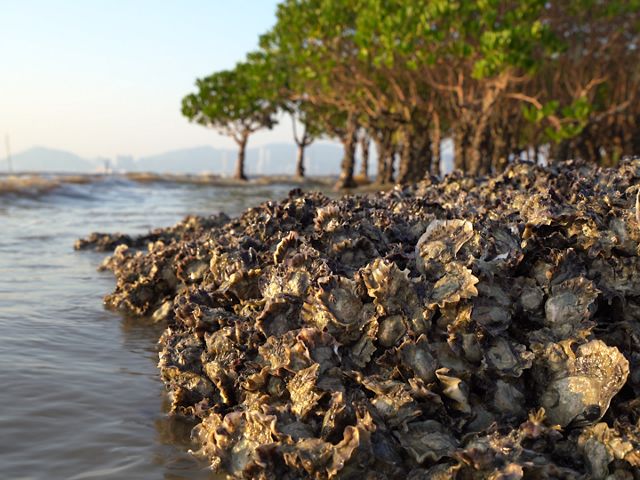
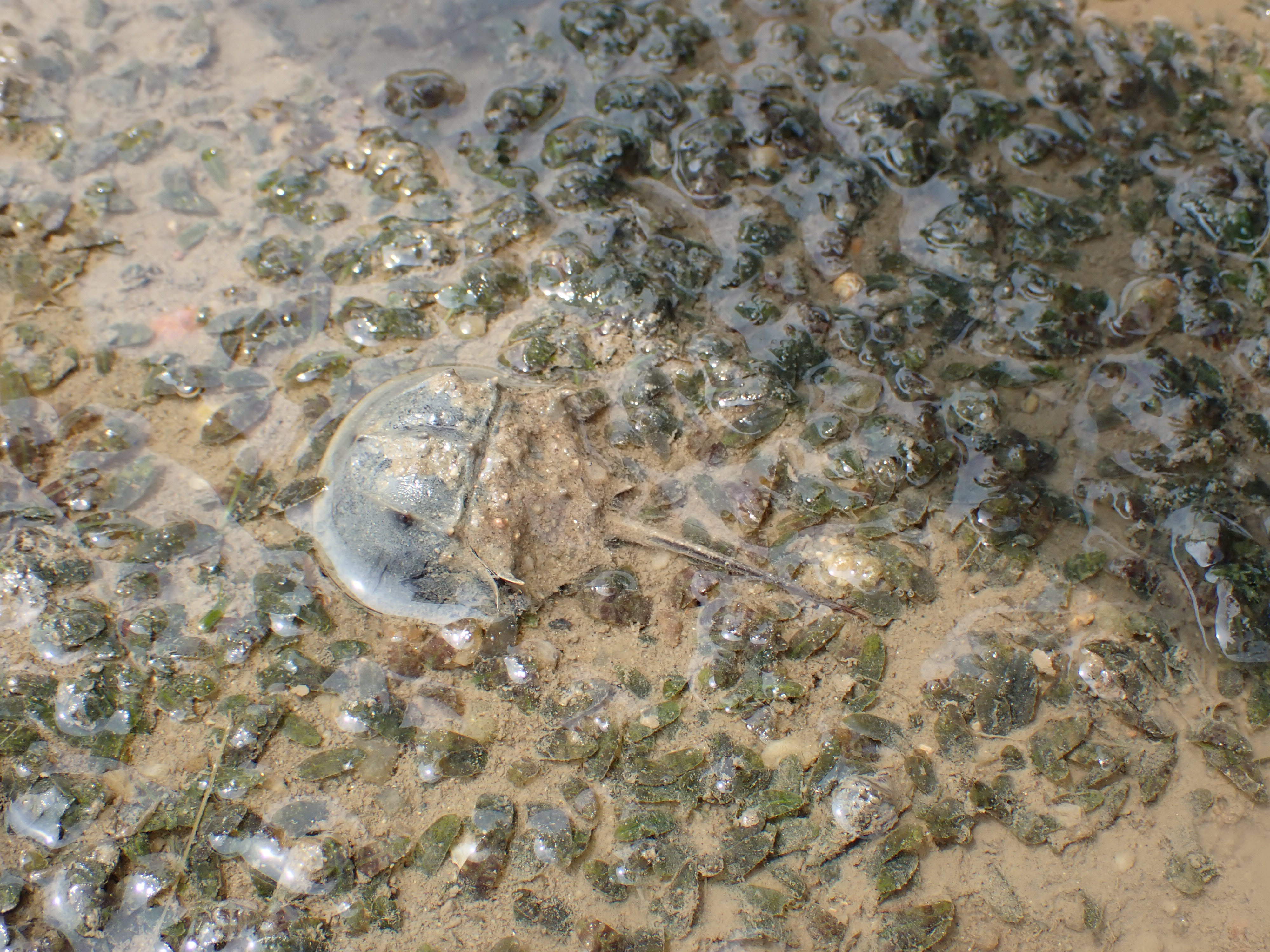
Hong Kong's Endangered Horseshoe Crabs
Pak Nai is also one of the few places where the two endangered horseshoe crab species native to Hong Kong can be found. Horseshoe crabs often get tangled in abandoned fishing equipment known as “ghost nets.” Without intervention, the chance of these crabs escaping is slim.
Fortunately for Pak Nai’s horseshoe crabs, TNC's increased habitat management efforts create opportunities for scientists, staff and volunteers to rehabilitate horseshoe crab habitat and find and release trapped horseshoe crabs. TNC is a member of the IUCN Horseshoe Crab Species Specialist Group and the data we share with this group contributes to global efforts to save horseshoe crabs from extinction.
Historically, Pak Nai was a site for traditional benthic oyster farms cultivated by local villagers. Though this traditional method of oyster farming is no longer in use, the mudflats of Pak Nai remain an ecological hotspot where endangered horseshoe crab and seagrass species can be found. However, Pak Nai is currently statutorily unprotected and unmanaged, leaving it exposed to increasing threats such as unsustainable tourism and rampant spreading of invasive species.
And while oysters continue to grow in artificial rows on the abandoned oyster farms, these spaced out poles does not promote denser, more natural reef growth.
What We Are Doing
TNC is committed to understanding, managing and restoring the various ecosystems in Pak Nai and other areas around Deep Bay. Our research and monitoring indicate that oyster reefs support six times more species than soft shores. This insight has led us to engage volunteers in transforming abandoned oyster farms into new natural oyster reefs, bringing these biodiversity benefits to Pak Nai.
Volunteers are the driving force behind our efforts to restore Pak Nai’s ecological health. We partner with our supporters on various initiatives, including biodiversity surveys, invasive cordgrass removal and aquaculture debris and marine litter clean-ups.




Invited by the communities to help restore and protect Pak Nai, TNC’s strategy is to work with local partners to revitalize Pak Nai’s unique mudflats and increase public awareness of its cultural and ecological importance. Taking a scientific approach, our research on Hong Kong’s estuaries and coastal habitat restoration may also assist in the decision-making process for preserving coastal ecosystems and promoting marine conservation and coastal resilience in the Greater Bay Area.
Our Conservation Strategy
-

To conduct scientific research and ecological monitoring such as sediment research, habitat mappings and horseshoe crab monitoring
-

To carry out active conservation management work such as reconfiguring abandoned oyster farms, removal of invasive cordgrass and clearing of aquaculture debris and marine litter
-

To promote sustainable tourism behavior and increase public awareness of oyster reefs through school sharing, public talks, educational tours, university ambassador trainings, educational panels set-up and community meetings with local stakeholders.
TNC's vision for Pak Nai is a restored natural ecosystem that is well managed for the benefit of local communities and nature. But restoring the mudflats of Pak Nai will not only benefit the local community and species that depend on these unique habitats, it will also strengthen TNC’s conservation work in Hong Kong, the Greater Bay Area and around the world.
Support Our Work
With its beautiful sunset overlooking Deep Bay, Pak Nai is a true example of Hong Kong’s natural beauty and plays a critical role in global conservation and coastal resilience efforts. Join us and support the restoration and revitalization of Pak Nai’s breathtaking mudflats.
